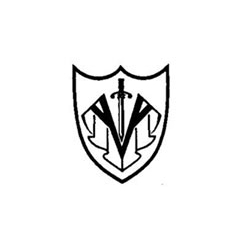
Organisation: St Martin at Shouldham Church of England Primary Academy
Intervention: Catch Up® Literacy, Catch Up® Numeracy
Submitted by: Lynda Nash
Background
Our school opened in September 2000, following the amalgamation of the village primary schools at Fincham and Shouldham. It is in a small village setting and has close links with the local community. We cater for around 180 children from rising 3 years to 11 years of age.
The children, parents, staff and governors are proud of their school and achievements and it is well known that intervention strategies are quickly put in place to ensure children work at their full potential and become the best they can be. The school values the results they have found with Catch Up® material, and resources are readily found to train staff to deliver this successful intervention, which is very popular with the children; this is why it is chosen.
Implementation
The twice-weekly Catch Up® sessions are carried out at different times each week so that children do not miss part of the same afternoon lesson, as this is often a subject which they enjoy (e.g. PE or art). We have found that Catch Up® is most effective when it is delivered by the TA who normally works in the child’s class. This promotes good relationships with the child and teacher, and the TA can often pre-empt class teaching to give the struggling learner increased confidence. In many classes, when the TA announces they need somebody to go to a Catch Up® session, you often find that the whole class wants to go! The TAs decide their own timetable in conjunction with the class teacher, to ensure good cooperation, learning and enjoyment by the children.
The TAs delivering the sessions are carefully linked with children to ensure the best outcomes. The relationship with the children needs to be good to ensure successful learning sessions. All trained TAs are trained to deliver both interventions, and they work with at least one child so that they keep up to date with the material.
Case Study 1 - Catch Up® Literacy
Towards the end of Year 2, a new child to the school was found to be lacking in confidence and achieving levels of work just below the national average in reading comprehension assessments. After the end-of-term discussion with the class teacher about levels of work in the class, the assessment coordinators suggested that the child try Catch Up® Literacy sessions in the last few weeks of the Summer term, and continue in the new academic year. The TA was carefully chosen to suit the character of the child and regular conversations with the TA and teacher indicated that progress was being made and confidence improving.
Assessments.
End of Year 2: level 2c+ Standardised Score 90 Point Score 14
End of Year 3: level 3c- Standardised Score 99 Point Score 18 – increase 4 points.
(The average point score increase for the class was 3.0 for Reading Comprehension)
Reading Age: 3 years progress made
End Yr 2: Reading age – 6yrs 0 months End Yr 3: 9yrs 0 months
End Yr 2: Chronological age – 7yrs 4 months End Yr 3: 8yrs 3 months
Case Study 2 - Catch Up® Numeracy
A standardised score of 94 but a level of work at the end of Year 2 of 2b (national average), indicated that child B would need careful monitoring when joining the Year 3 class with a new teacher. He was not confident in many areas so, after a poor autumn first half-term assessment, it was decided to assess him for Catch Up® Numeracy. He responded well to 1:1 sessions and was very keen to work with the allocated Teaching Assistant in addressing gaps in learning, especially word problems. He was an able reader but found it difficult to translate word problems to number sentences. Confidence grew and his parents were keen to participate in regular chats about his progress. By the end of Year 3, he had level 3b in an assessment, with a standardised score of 108. Both he and his parents were delighted with the school’s intervention. He was keen to continue for a while with the sessions but has recently stopped, as progress in class has continued and there is an improvement in independent working.
2b - profile points 15, 3b - profile points 21; an increase of 6 points (nationally-expected average increase - 3!)
Aims
We aim to achieve excellence by:
• preserving and developing the religious character of the school, to underpin our school ethos and learning culture
• assisting pupils in acquiring appropriate social and emotional skills, with high expectations of self-discipline and independence
• providing opportunities to enhance pupils' spiritual, moral, social and cultural development
• promoting a strong partnership between parents, staff and pupils with effective communication and mutual support
• embracing diversity and encouraging equal opportunities in all areas of the community
• actively including pupils in achieving and celebrating success
• creating an environment where every child will flourish and achieve their potential
• developing and delivering a curriculum with opportunities to challenge, explore, create and inspire
• developing our enthusiastic, dedicated staff
• making our school a caring, secure and supportive environment
• raising awareness of sustainable development as stewards of God's Creation and as active citizens of the future
• understanding and promoting the school's place in the wider community